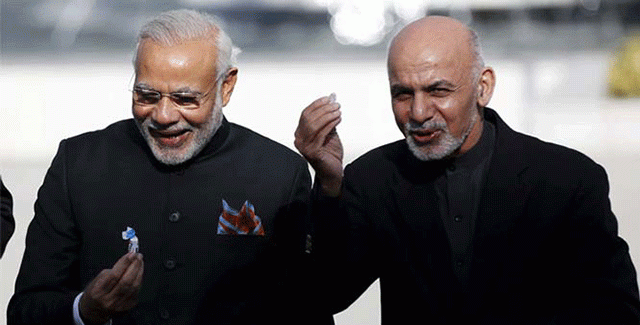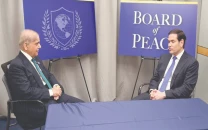By embracing India's anti-Pakistan policy, Kabul risks peace in Afghanistan
Unless there’s a true statesman governing Afghanistan, India may use Afghans to fight Pakistan

For the Karzais, Ghanis and Abdullahs of Afghanistan, the country is a podium and a goldmine. For much of the Afghan politicians and their Indian patrons, Afghan history is either 5000 years old or began right with the events of 9/11. Where were these politicians when the Soviets backed by India launched a full-scale occupation using every resource from brute air power to deadly land forces?
India’s efforts to divide Afghanistan and Pakistan will not go very far: Sartaj
Ashraf Ghani left Afghanistan in 1977 for Denmark and eventually the US. The man returned to Kabul in December 2001 to become Hamid Karzai’s top financial advisor. Mariam Ghani, the Afghan president’s daughter, still resides in the US, her birthplace. She occasionally visits Kabul, perhaps to keep connections and funding alive for her activism. His son, Tarek Ghani is a postdoctoral fellow at the Woodrow Wilson School at the Princeton University.
Dr Abdullah Abdullah remained conveniently aligned with Kabul’s puppet regime albeit for a brief period of one year – 1985 to 1986 – when he moved to Peshawar and worked in a hospital. Come early 1990s, he became the right-hand of fellow Tajik warlord Ahmad Shah Masud. He survived in Kabul’s power circles till 1996 when Taliban took over the Afghan capital. Abdullah held the foreign ministry portfolio from 2001 to 2005. According to Anis Daily newspaper, Abdullah’s wife Fakhria lives in India with her four school-going children.
Both the leaders at the helm have little idea of the suffering an average Afghan withstood during the Soviet invasion, Taliban’s takeover and the suffering endured under the NATO. Like Modi, their best bet seems changing geography by adversely and irreparably damaging Pakistan. The Indian leaders’ perverse ambition aims at bringing ever more chaos along Afghanistan’s bordering regions than any respite from its own volcanic faultlines. Islamabad, meanwhile, has corrected its course by not only essentially eliminating Taliban and al-Qaeda sanctuaries in its tribal regions and elsewhere but also ensuring improved surveillance and management of its western border, which remain overwhelmingly un-secured from the Afghan side. As much as Pakistan did, it did so to deny militant movement into the war-ravaged country but also to secure its own territory of foreign proxies and miscreants. For Pakistan’s security and development, a peaceful and prosperous Afghanistan is undoubtedly a key pre-requisite.
India’s efforts to divide Afghanistan and Pakistan will not go very far: Sartaj
How far has Afghanistan come since Bonn conference in 2002 when the comity of nations began the process of facilitating its transition from pariah to a mainstream nation-state? The challenge faced then still confronts the world. What can be done for the land-locked, tribally and racially-divided country?
Taliban are resurging, not along the Pakistan-bordering eastern provinces but in the centre, the north and the west. The Afghan troops and police have failed to stem desertions. The tribal elders are refusing to pay state taxes and embrace mainstream economy. Pakistan has nothing to do with the dares listed above. Yet, Ghani and Abdullah prefer travelling more often to the foreign capitals than their country’s provincial headquarters.
Embracing India’s clandestine foreign policy goals of disrupting peace in Balochistan and branding Pakistan as a terrorist state risk peace and development in Afghanistan whose citizens are no less desperate to escape to Europe than the displaced Syrians and Yemenis. The Afghans won’t have the luxury of foreign financial assistance as enjoyed since 2001 for the donor fatigue is only worsening with mounting humanitarian crises in the Middle East and North Africa. Certainly, the Heart of Asia offers Afghanistan last firm prospect to get the best of friendly assistance in realms of security, reconstruction and development. Unless Afghans place a true statesman at the helm in Kabul, Ajit Doval - Modi’s National Security Advisor - may realise his alleged dream to “fight Pakistan to the last Afghan”.
Naveed Ahmad is a Pakistani investigative journalist and academic with extensive reporting experience in the Middle East and North Africa. He is based in Doha and Istanbul. He tweets @naveed360



















COMMENTS
Comments are moderated and generally will be posted if they are on-topic and not abusive.
For more information, please see our Comments FAQ